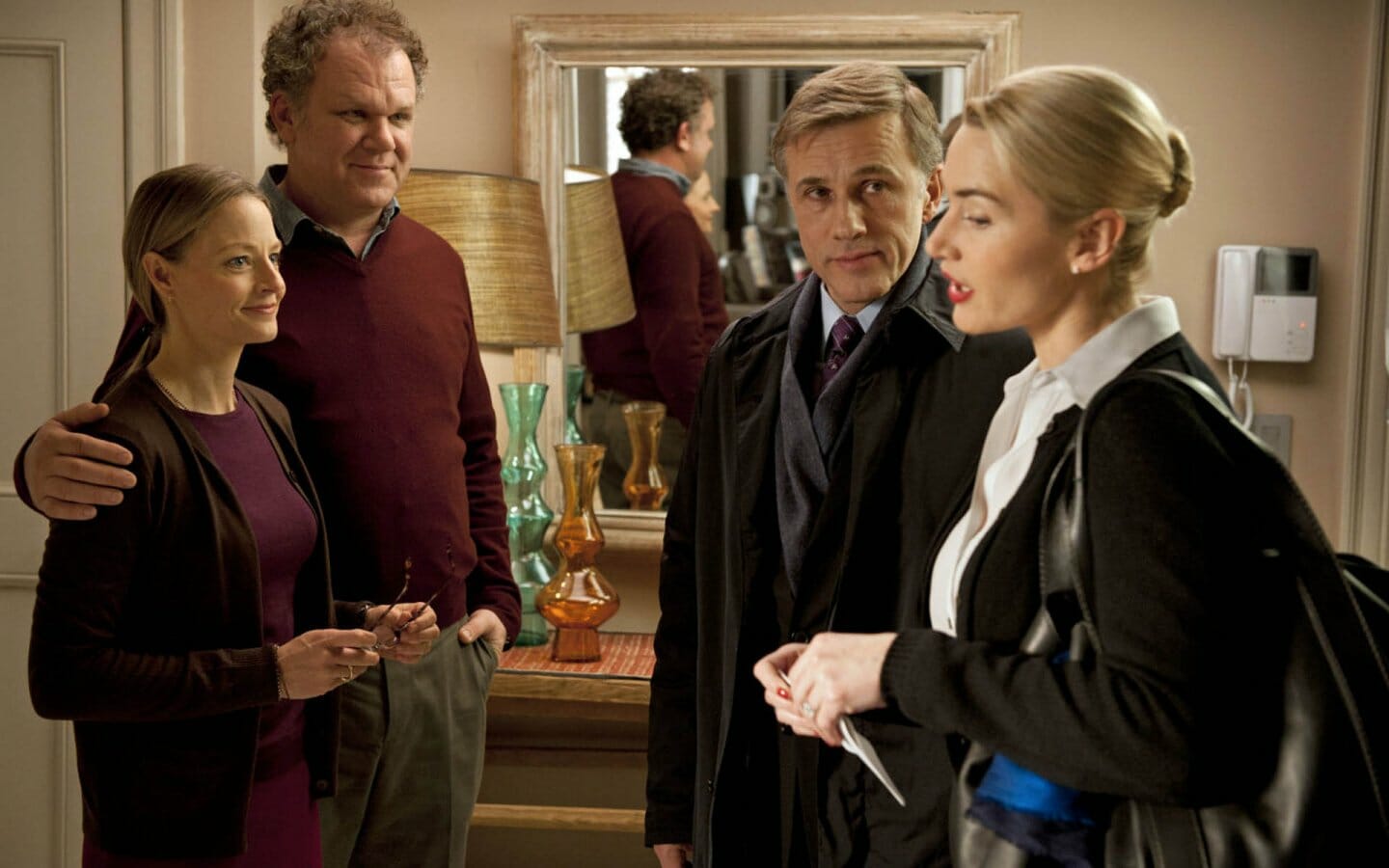Carnage

“Penelope, I believe in the god of carnage, the god who’s been unchallenged since the beginning of time.”
Critically acclaimed director Roman Polanski (The Pianist, Rosemary’s Baby) has adapted Yasmina Reza’s award-winning play, (God of Carnage, to make one of 2011’s best films. Carnage is a daring, perfectly cast comedy that presents a supremely authentic story of a day in the lives of well-to-do Americans, and one that, ironically, might have only been possible coming from a French-German-Spanish-Polish production. Shot in Paris but set in Brooklyn, Polanski’s latest film presents a view of “civilized” society that is equal parts “cruelty and splendor, chaos and balance.”
In the film, married couple Penelope (Jodie Foster) and Michael Longstreet (John C. Reilly) meet with Nancy (Kate Winslet) and Alan Cowan (Christoph Waltz) to civilly and maturely discuss a playground fight that has occurred between their sons. The Longstreets’ apartment (where the meeting is held, and the entire film set) is the perfect, contemporary yuppie home, and the parents involved are all respectable, hard-working, upper-class liberal-leaning adults. What—the beginning of the film seems to ask—could possibly go wrong?
As new details emerge about the boys’ fight (which one got called a “snitch,” which one was running the gang, etc.), the parents’ true natures are revealed, and the slaughter of each character’s culturally prescribed role commences. Have they gathered, the viewer wonders, because they are responsible and mature adults, or are they (like most parents) simply living up to the expectation that they operate within a certain cordial, liberal code? The film shows how far they will (and must) go to prove that they are good and loving people, and how short they will fall in the attempt.
Cultural theory abounds, but Polanski delivers his powerful material in a straightforward, unsentimental way, similar to his work on The Pianist. Any discomfort that may be experienced over what is, essentially, a humorous attack on the notion of identity soon fades. However, the film is not some high-art artifact readily placed amongst Penelope Longstreet’s expensive textiles and authentic African figurines. Carnage resists such placement (which it evokes as much as it critiques) because it is, above all, a comedy. While each character is played exceptionally well, Reilly—as Penelope’s husband—stands out. A master of comedic delivery, one cannot help but to see shades of Dale Doback (Reilly’s role from Step Brothers) in the performance. In fact, Michael Longstreet is Dale, if Dale had gone on to marry an upper-class, Africa-hearting liberal. The havoc he reeks in Carnage is almost entirely verbal (although there is reference to some light-to-heavy hamster homicide), but is nonetheless hilarious. Once he angrily admits to being “dressed up like a liberal” by his wife, the Scotch comes out of the liquor cabinet, and the characters’ interactions weave fantastically in and out of the complex and absurd world of adult conversation.
-

-

-

-

-

-

-

-

-

-

-

-

-

-

-

-

-

-

-

-

-

-

-

-

-

-

-

-

-

-

-

-

-

-

-

-

-

-

-

-








































